In the bustling world of outdoor cooking and culinary innovation, the contact grill has emerged as a versatile and popular choice for both professional chefs and home cooks alike. This compact cooking appliance, with its ability to cook food on a flat surface, offers a unique grilling experience that can be both convenient and flavorful. As the demand for high-quality contact grills continues to rise, the role of Original Equipment Manufacturers (OEMs) in the industry has become increasingly significant. These manufacturers not only produce the core components of these grills but also provide the expertise and customization that can make a brand stand out in a crowded market. Understanding the benefits of partnering with a reliable OEM and the features that define a high-quality contact grill is essential for any business looking to thrive in this dynamic sector. Let’s delve into the intricacies of this partnership and explore some success stories that highlight the impact of working with the right OEM.
Introduction to Contact Grill Manufacturers
Contact grill manufacturers are at the forefront of the outdoor cooking equipment industry, specializing in the design and production of contact grills. These versatile cooking appliances are beloved for their ability to deliver a seared, charred exterior and a juicy, tender interior, making them a favorite among barbecue enthusiasts and professional chefs alike. Whether for commercial use in restaurants or for personal enjoyment in backyards, contact grills have become a staple in the world of grilling.
The evolution of contact grill technology has been marked by innovations that enhance efficiency, convenience, and culinary outcomes. Manufacturers are constantly pushing the boundaries to create grills that not only meet but exceed the expectations of consumers. From compact, portable models to robust, commercial-grade units, the variety of contact grills available today caters to a wide range of needs.
In the heart of this dynamic industry, contact grill manufacturers are the artisans of heat and flame. They understand the science behind grilling, from the perfect temperature to maintain a consistent sear to the importance of precise heat distribution. Their expertise lies in creating a cooking surface that allows for even cooking, reducing the risk of hot spots that can burn food.
These manufacturers often work with high-quality materials that ensure durability and longevity. The construction of a contact grill is not just about looks; it’s about the structural integrity that allows for years of reliable performance. Aluminum, stainless steel, and cast iron are commonly used materials that offer different advantages, from heat retention to easy maintenance.
The design of contact grills is another area where manufacturers excel. From the sleek, modern aesthetics of compact grills to the robust, heavy-duty frames of commercial models, each grill is crafted to complement its intended environment. The controls are user-friendly, with intuitive temperature settings and safety features that make grilling a safe and enjoyable experience.
One of the standout features of contact grills is their versatility. They can be used to cook a variety of foods, from steaks and burgers to vegetables and seafood. The even heat and direct contact with the cooking surface ensure that each piece of food is treated to a perfect sear, locking in flavors and juices.
In addition to their cooking capabilities, contact grills are also known for their ease of use. Many models come with features like adjustable thermostats, drip trays for easy cleanup, and removable cooking surfaces for convenient maintenance. Some even include built-in timers and temperature probes, taking the guesswork out of grilling.
The contact grill manufacturing process is a blend of art and science. It involves meticulous engineering, rigorous testing, and a deep understanding of consumer preferences. Manufacturers often invest in state-of-the-art facilities and equipment to ensure that every grill that leaves their factory meets the highest standards.
The rise of contact grill manufacturers has also brought about a competitive market, which is a boon for consumers. With so many options available, customers can find a contact grill that fits their budget, cooking style, and space requirements. This competition has led to a constant stream of new features and improvements, making contact grills more accessible and efficient than ever before.
In conclusion, contact grill manufacturers are the backbone of the contact grill industry. Their dedication to innovation, quality, and customer satisfaction has made contact grills a beloved cooking tool. Whether you’re a seasoned grill master or a casual cook looking to elevate your outdoor cooking experience, these manufacturers have the products and expertise to meet your needs.
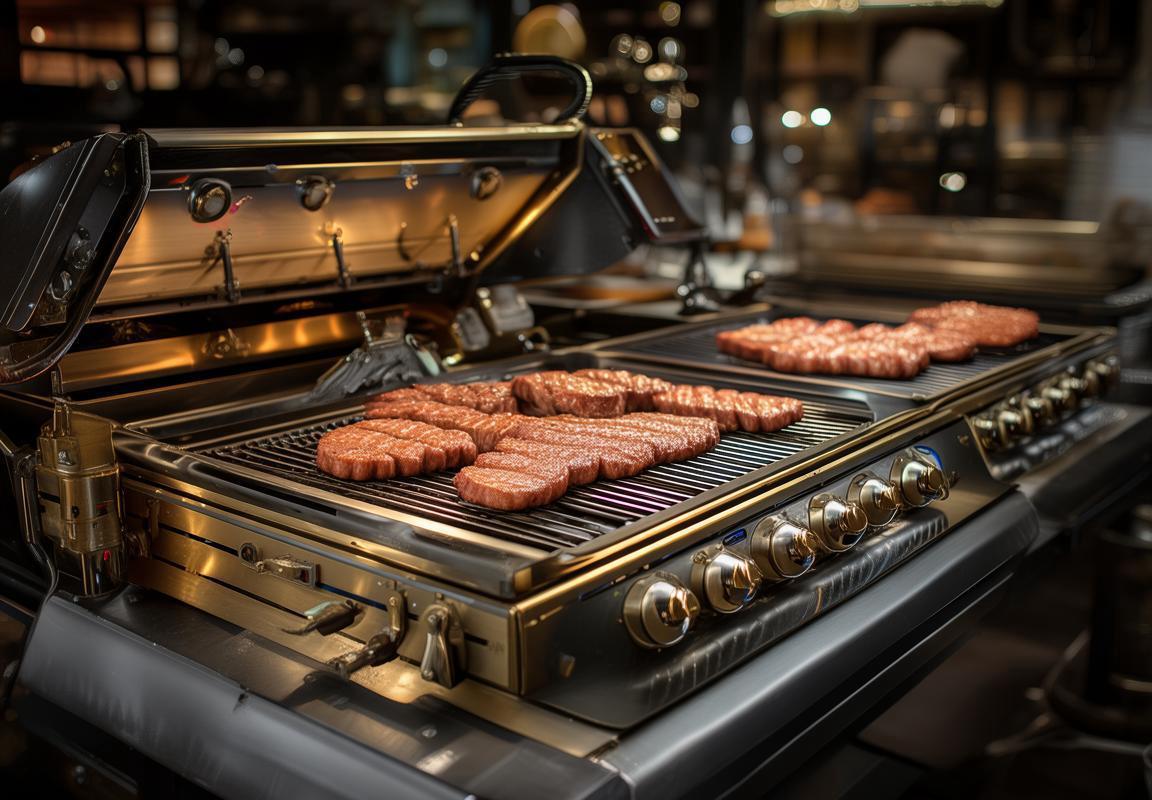
Understanding the Role of OEMs in the Contact Grill Industry
In the realm of outdoor cooking appliances, the role of Original Equipment Manufacturers (OEMs) within the contact grill industry is pivotal. These manufacturers specialize in the production of customized grill solutions, serving a variety of purposes from residential to commercial use. Let’s delve into the multifaceted role that OEMs play in this dynamic sector.
OEMs act as the backbone for many well-known brands in the contact grill market. They design, develop, and manufacture the core components that these brands then market and sell to consumers. This collaboration allows brands to focus on their marketing and customer service, while OEMs handle the intricate details of production.
One of the primary functions of a contact grill OEM is to innovate and adapt to the latest trends. As consumer preferences shift towards healthier cooking methods and increased convenience, OEMs must stay ahead of the curve. This often involves investing in new technologies, such as adjustable temperature controls, non-stick surfaces, and efficient heating elements.
Customization is another cornerstone of the OEM’s role. Businesses looking to enter the market or differentiate their product lines can turn to OEMs for tailored solutions. Whether it’s a specific size, design, or feature set, OEMs can work closely with clients to create a product that meets their unique needs. This level of personalization ensures that each product stands out in a crowded marketplace.
Quality control is a critical aspect of OEM operations. The reputation of the brand is often riding on the reliability and performance of the grill. As such, OEMs must adhere to stringent quality standards throughout the manufacturing process. This includes the selection of high-quality materials, rigorous testing procedures, and ongoing improvements to manufacturing techniques.
Collaboration with suppliers is essential for OEMs. They rely on a network of trusted suppliers to provide the necessary components and raw materials. This partnership ensures that the OEM can maintain consistent quality and deliver products on time. It also allows for cost-effective sourcing and the ability to adapt to supply chain changes.
The lifecycle of a contact grill product is managed by the OEM from conception to end-of-life. This includes product design, prototyping, testing, and production. OEMs also often handle the logistics of assembly, packaging, and shipping. This comprehensive approach ensures that the final product meets the brand’s expectations and those of the end-user.
In the realm of service and support, OEMs can provide valuable assistance. They may offer technical support for both the manufacturing process and the final product. This support can extend to troubleshooting, maintenance tips, and even training for the sales and service teams of the brands they work with.
Moreover, OEMs often take on the responsibility of compliance with industry regulations and standards. This includes safety certifications, environmental regulations, and labeling requirements. By handling these compliance issues, OEMs help their clients avoid potential legal and financial risks.
Innovation is a driving force within the contact grill industry, and OEMs are at the forefront of this movement. They invest in research and development to create new features, improve existing designs, and explore alternative materials. This commitment to innovation not only enhances the product offerings but also positions OEMs as leaders in the industry.
When it comes to scalability, OEMs offer a significant advantage. Whether a brand is looking to launch a new product or scale up production, OEMs can accommodate varying levels of demand. This flexibility is crucial for brands that want to respond quickly to market opportunities or manage seasonal fluctuations in sales.
Finally, the role of OEMs in the contact grill industry is not just about manufacturing; it’s about fostering long-term relationships with clients. By providing reliable products, exceptional service, and a commitment to continuous improvement, OEMs help their clients build trust with their customers. This trust is the foundation for a strong, enduring partnership that can weather the changing tides of the market.
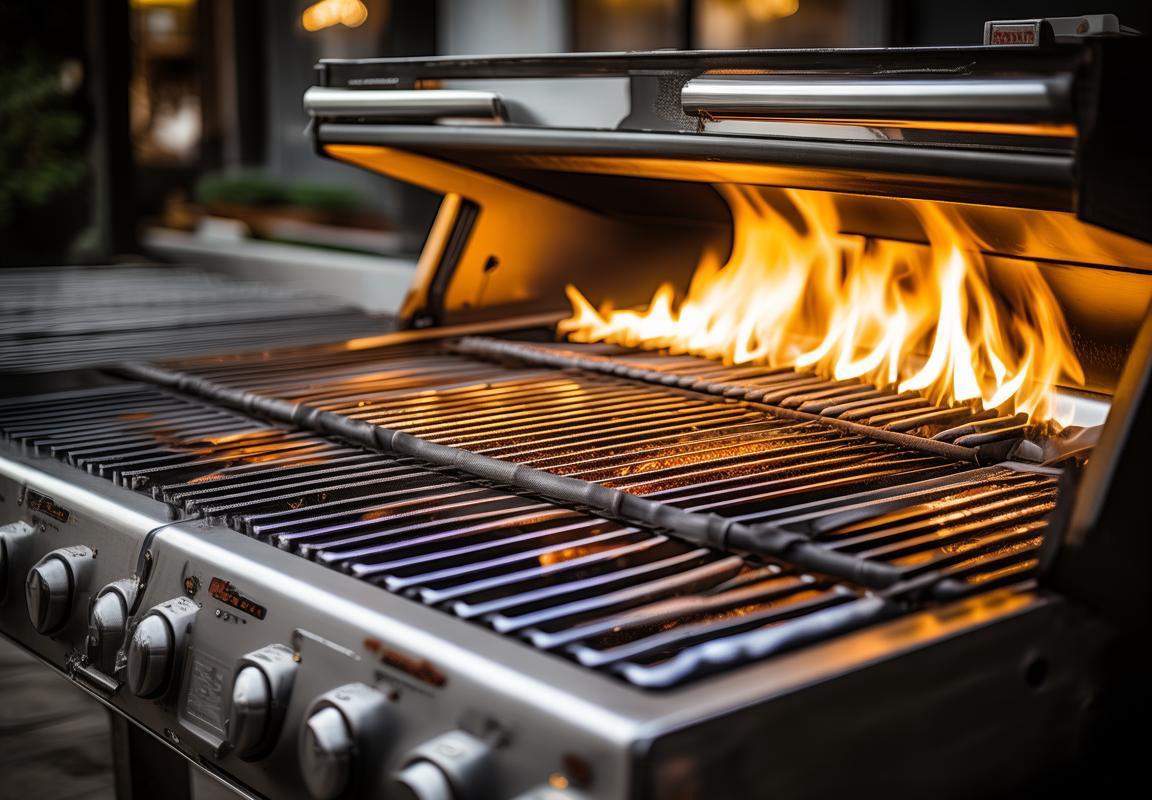
Key Benefits of Partnering with a Contact Grill Manufacturer OEM
Partnering with a Contact Grill Manufacturer OEM can offer a myriad of advantages for businesses looking to enter or expand in the contact grill market. From cost savings to technical expertise, here’s how a strategic alliance can propel your brand forward:
Manufacturers provide access to cutting-edge technology. By working with an OEM, you gain access to the latest innovations in contact grill design and manufacturing. This ensures that your products are not just competitive but also on the forefront of technology trends.
Streamlined production processes lead to efficient output. OEMs specialize in producing contact grills, which means they have refined their production methods to maximize efficiency. This efficiency translates to quicker turnarounds and the ability to scale production as demand grows.
Customization options can be tailored to your brand’s needs. When you partner with an OEM, you have the flexibility to customize the design, features, and branding of the contact grills. This allows your products to stand out in the market and align with your brand identity.
Quality control is consistently high. OEMs are committed to maintaining stringent quality standards, ensuring that every contact grill meets or exceeds industry benchmarks. This reliability builds trust with your customers and enhances your brand reputation.
Reduced costs due to bulk purchasing. OEMs often enjoy bulk discounts on components and materials, which can be passed on to you. This can significantly reduce your production costs, making your products more competitive in the marketplace.
Expertise in material sourcing and supply chain management. An OEM has established relationships with suppliers and can source materials at competitive prices. They also manage the supply chain effectively, reducing the risk of delays and ensuring a steady supply of components.
Rapid prototyping and development cycles. OEMs are adept at turning design concepts into functional prototypes quickly. This agility allows you to bring new products to market faster, capitalizing on market opportunities before they fade.
Scalability without the overhead. As your business grows, scaling up production can be challenging. An OEM can handle the increased volume without the need for a significant increase in your own operational infrastructure.
Risk mitigation through quality assurance. The rigorous quality assurance processes employed by OEMs help mitigate the risk of manufacturing defects. This can save you from costly recalls and customer dissatisfaction.
Enhanced design capabilities with professional engineering support. OEMs typically have a team of experienced engineers who can provide technical advice and support. This ensures that your products are not only functional but also aesthetically pleasing and user-friendly.
Access to a global network of distribution channels. Many OEMs have established partnerships with distributors and retailers worldwide. This can expand your reach and open up new markets for your contact grills.
Long-term cost savings through economies of scale. By leveraging the economies of scale, OEMs can offer long-term cost savings on production and materials. This can contribute to a more sustainable and profitable business model.
Compliance with industry standards and regulations. OEMs are well-versed in the standards and regulations that apply to the contact grill industry. This ensures that your products are compliant, reducing the risk of legal issues or product bans.
Strategic partnerships can lead to collaborative innovation. Working closely with an OEM can lead to joint innovation efforts, where both parties contribute ideas and expertise to develop new and improved contact grill technologies.
By partnering with a Contact Grill Manufacturer OEM, businesses can leverage a wide range of benefits that can lead to increased market share, improved profitability, and a stronger competitive edge.
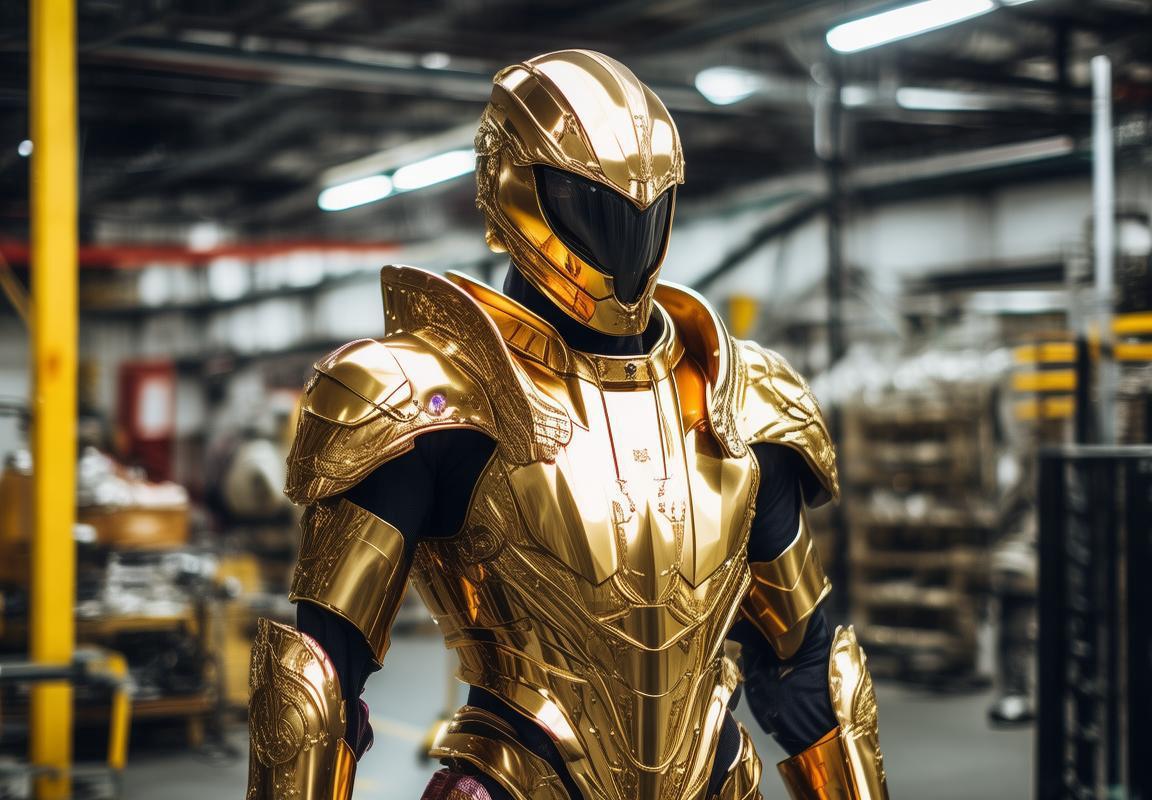
How to Choose the Right Contact Grill Manufacturer OEM
Choosing the right Contact Grill Manufacturer OEM is a critical decision that can significantly impact the quality and success of your product. Here are several factors to consider when making this choice:
-
Quality Control and Standards: Look for an OEM that adheres to rigorous quality control processes. They should have a strong track record of producing grills that meet or exceed industry standards. Ensure they have certifications such as ISO 9001, which guarantees a focus on quality management.
-
Customization Capabilities: The ability to customize your contact grill is essential, especially if you’re targeting specific market segments or have unique product requirements. A skilled OEM should be able to offer a range of customization options, from design modifications to specific features or finishes.
-
Experience and Reputation: An experienced OEM will likely have a deeper understanding of the contact grill market and the latest trends. Research their reputation by checking reviews, testimonials, and case studies. An established OEM can often provide more reliable and innovative solutions.
-
Technical Expertise: The technology used in contact grills is crucial for performance and safety. Ensure the OEM has a team of skilled engineers and technicians who are up-to-date with the latest advancements in cooking technology, materials, and manufacturing techniques.
-
Production Capacity: Consider the OEM’s production capacity to ensure they can meet your volume requirements. If you anticipate high demand, you’ll want an OEM that can scale production without compromising quality.
-
Flexibility and Responsiveness: A good OEM should be flexible in their approach to manufacturing. They should be able to respond quickly to any changes or issues that may arise during the production process. This includes being adaptable to new materials, processes, or regulations.
-
Financial Stability: Partnering with a financially stable OEM is crucial for long-term success. Look for signs of stability, such as a strong balance sheet, a history of reliable payments to suppliers, and a good reputation among financial institutions.
-
Support and After-Sales Service: The relationship with your OEM doesn’t end after production. Choose an OEM that offers comprehensive support and after-sales service. This includes technical assistance, spare parts availability, and customer service for any issues that may arise post-production.
-
Global Reach and Distribution: If you’re looking to expand into international markets, consider an OEM with a global reach. They should have the ability to handle shipping, logistics, and compliance with various international standards.
-
Innovation and Research: A forward-thinking OEM invests in research and development. They should be able to offer new ideas, technologies, and design improvements that can give your product a competitive edge.
-
Collaboration and Communication: The ability to collaborate effectively with the OEM is key. Ensure they have a clear line of communication, are open to feedback, and can provide regular updates on the production process.
-
Cost-Effectiveness: While cost should not be the sole determining factor, it’s important to find a balance between quality and affordability. A reputable OEM should be able to provide a cost-effective solution without compromising on the quality of the final product.
-
Environmental Responsibility: In today’s market, sustainability is a significant factor. Consider an OEM that is committed to environmentally friendly practices, such as using eco-friendly materials and reducing waste during production.
-
Long-Term Partnership Potential: Look for an OEM that sees the potential for a long-term partnership. They should be willing to invest in your product’s success and be open to developing a strategic relationship.
-
Industry Network: An OEM with a strong network in the industry can be incredibly beneficial. They can provide insights into market trends, consumer preferences, and potential collaborations with other industry players.
By carefully considering these factors, you can make an informed decision when selecting the right Contact Grill Manufacturer OEM for your needs. Remember, the right OEM can not only help you bring your product to market but also ensure its success and longevity in a competitive market.
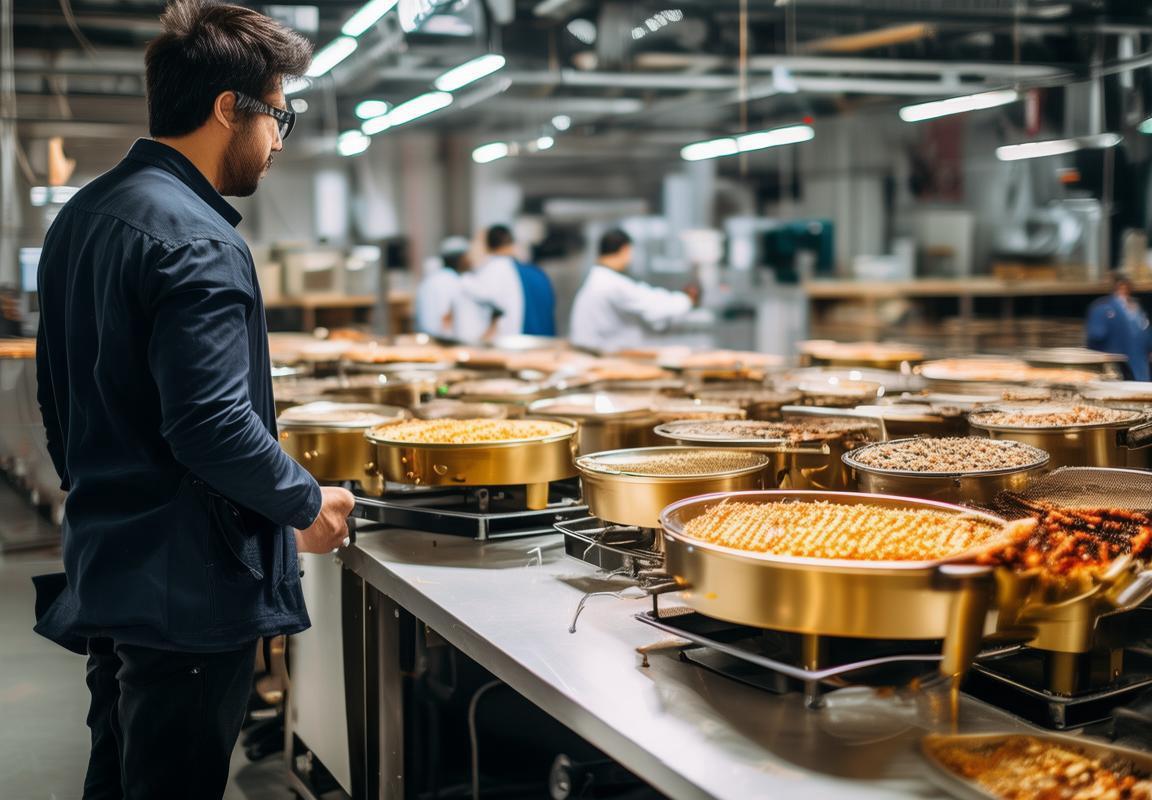
Common Features of High-Quality Contact Grills
In the world of outdoor cooking, contact grills have become a staple for those seeking a compact and efficient way to achieve that perfect sear. High-quality contact grills are not just about looks; they are designed with features that enhance performance, durability, and user experience. Here are some common features that set these grills apart:
-
Even Heat Distribution: A hallmark of a high-quality contact grill is its ability to distribute heat evenly across the cooking surface. This ensures that every piece of food cooks uniformly, preventing hot spots and cold areas that can lead to uneven cooking and potential burning.
-
Non-Stick Coating: To make cleaning easier and to prevent food from sticking, many high-quality contact grills are coated with a non-stick surface. This not only makes the grill more user-friendly but also prolongs the life of the cooking surface.
-
Adjustable Thermostats: Accurate temperature control is crucial for achieving the desired level of doneness. High-quality contact grills often come with adjustable thermostats that allow users to set and maintain the perfect temperature for different types of food.
-
Removable Cooking Plates: For easy cleaning and the ability to cook different types of food, high-quality contact grills typically have removable cooking plates. This feature also makes it possible to use the grill for various cooking methods, such as grilling, searing, and even frying.
-
Safety Locks and Interlocks: Ensuring safety is a priority in high-quality contact grills. Many models include safety locks and interlocks that prevent the grill from being opened while in use, reducing the risk of burns and accidents.
-
Built-In Temperature Gauges: Some high-quality contact grills are equipped with built-in temperature gauges that provide real-time feedback on the grill’s temperature. This allows users to monitor and adjust the heat as needed for the best results.
-
Durable Construction: High-quality contact grills are often made with durable materials like stainless steel, which not only looks great but also withstands the rigors of frequent use. The construction should be robust enough to handle heavy-duty cooking without warping or bending.
-
Ergonomic Handles and Controls: Easy-to-use handles and controls are a must for a high-quality contact grill. Ergonomic designs ensure a comfortable grip, and controls should be straightforward, allowing users to adjust settings without guesswork.
-
Large Cooking Surfaces: A high-quality contact grill typically offers a spacious cooking surface that can accommodate a variety of foods and larger portions. This is particularly important for families or those entertaining guests.
-
Easy to Store: After cooking, a high-quality contact grill should be easy to store. Look for models that fold up compactly or come with a storage stand to save space in your kitchen or outdoor area.
-
Additional Features: Some high-quality contact grills come with additional features that enhance the cooking experience. These might include indicator lights for power and temperature, drip trays to catch grease and fat, and adjustable cooking plates that can be tilted for different cooking styles.
-
Warranty and Customer Service: A good indication of a high-quality contact grill is the warranty it comes with and the level of customer service provided by the manufacturer. A longer warranty period and responsive customer support can give you peace of mind about your purchase.
By focusing on these features, you can be confident that you’re investing in a contact grill that will provide years of reliable service and delicious meals. Remember, the right grill can make all the difference in your outdoor cooking adventures.
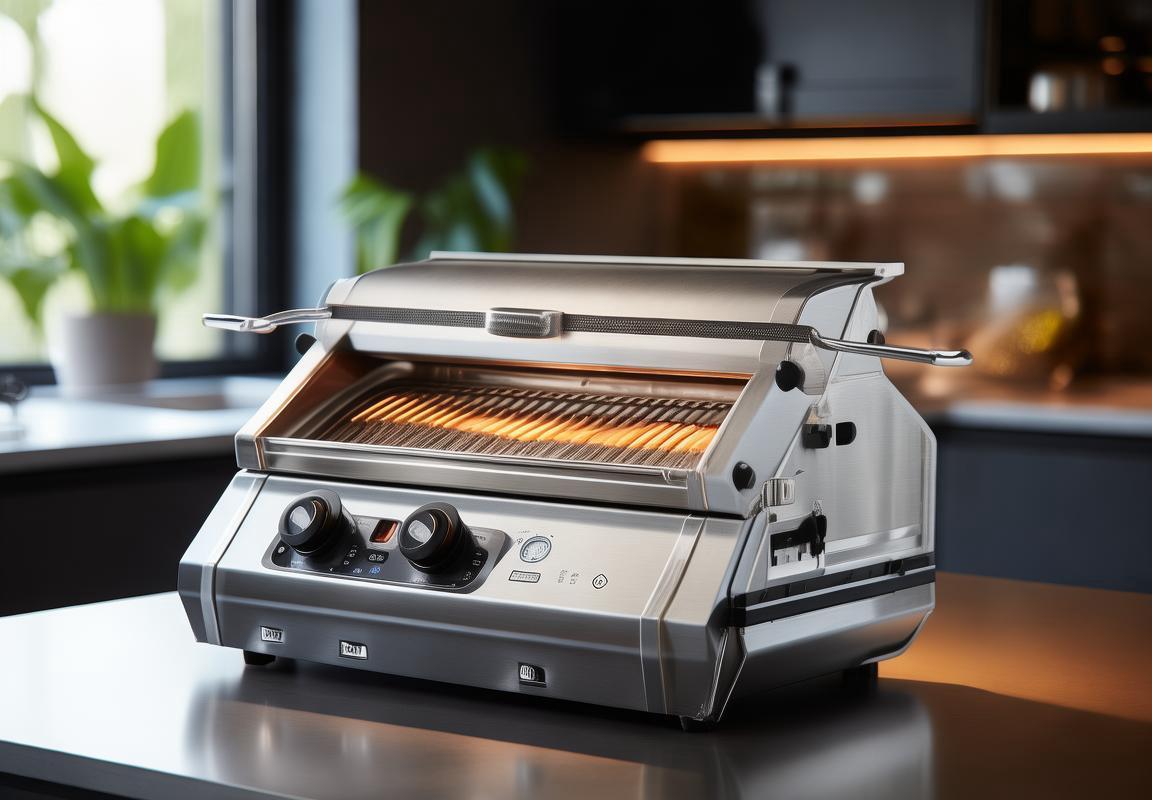
The Process of Collaborating with a Contact Grill Manufacturer OEM
Navigating the intricate process of collaborating with a contact grill Original Equipment Manufacturer (OEM) is a pivotal step in bringing your product to market. Here’s an in-depth look at the process, from initial contact to final production.
Understanding the OEM’s CapabilitiesBefore diving into collaboration, it’s crucial to understand the OEM’s range of capabilities. This includes not just their technical expertise in manufacturing contact grills but also their ability to customize, their production capacity, and their quality control measures. Assessing these factors helps in determining if the OEM aligns with your brand’s vision and production needs.
Initial Communication and ProposalThe process often starts with initial communication. Reach out to the OEM with a detailed proposal outlining your product requirements, target market, and any specific features or design elements you seek. This proposal serves as a foundation for the OEM to understand your needs and provide feedback or suggestions.
Project Planning and Cost AnalysisOnce the proposal is received, the OEM will typically conduct a project planning phase. This involves detailed discussions about timelines, materials, labor, and potential costs. The OEM will analyze the feasibility of your project, considering factors like design complexity, production volume, and market demand. It’s here that cost estimates and delivery schedules are hashed out.
Design and Engineering CollaborationThe next step is to delve into the design and engineering phase. This is where your vision and the OEM’s expertise intersect. You’ll work together to refine the design, ensuring it meets both your brand’s standards and the expectations of your customers. The OEM’s engineering team will provide input on manufacturing feasibility, suggesting modifications that could improve the grill’s performance or reduce costs.
Sample Production and TestingBefore moving to full-scale production, a prototype or a sample batch is often produced. This allows both parties to test the contact grill for quality, functionality, and adherence to design specifications. Feedback from this phase is crucial, as it can lead to further refinements that ensure the final product meets or exceeds expectations.
Quality Assurance and CertificationQuality control is a non-negotiable in the contact grill industry. The OEM will establish a rigorous quality assurance process, which may include regular inspections, testing for durability, and compliance with safety standards. Certification, such as meeting specific health and safety regulations, is often a requirement for market entry, and the OEM will guide you through this process.
Negotiating Production TermsOnce the design is finalized and quality is ensured, it’s time to negotiate production terms. This includes agreeing on the production volume, pricing structure, delivery schedules, and any additional services the OEM might offer, such as packaging or branding customization. Clear communication and mutual understanding are key to a successful negotiation.
Production and Supply Chain ManagementWith all terms agreed upon, the actual production begins. The OEM will manage the supply chain, ensuring a steady flow of raw materials and components. They will also handle any subcontracting needed for specialized parts or processes. Keeping an eye on the production schedule is important to ensure timely delivery.
Order Fulfillment and LogisticsAs the contact grills are produced, logistics come into play. The OEM will coordinate the transportation of the finished products to your warehouse or directly to your customers. This includes managing customs and import/export documentation if the grills are being shipped internationally. Ensuring smooth order fulfillment is critical for maintaining customer satisfaction.
Post-Production Support and Ongoing CollaborationEven after the products are delivered, the relationship with the OEM doesn’t end. The OEM should offer post-production support, including any necessary technical assistance or warranty claims. Ongoing collaboration is beneficial for future product developments, upgrades, or modifications that might be needed to stay competitive in the market.
Regular Reviews and Continuous ImprovementTo maintain a successful partnership, it’s essential to conduct regular reviews of the collaboration. This allows both parties to discuss performance, identify areas for improvement, and plan for future projects. Continuous improvement ensures that the relationship evolves to meet changing market demands and business goals.
In conclusion, collaborating with a contact grill OEM is a multi-faceted process that requires careful planning, effective communication, and a shared commitment to quality and excellence. By navigating each step thoughtfully, you can build a strong, enduring partnership that propels your brand forward in the competitive landscape.
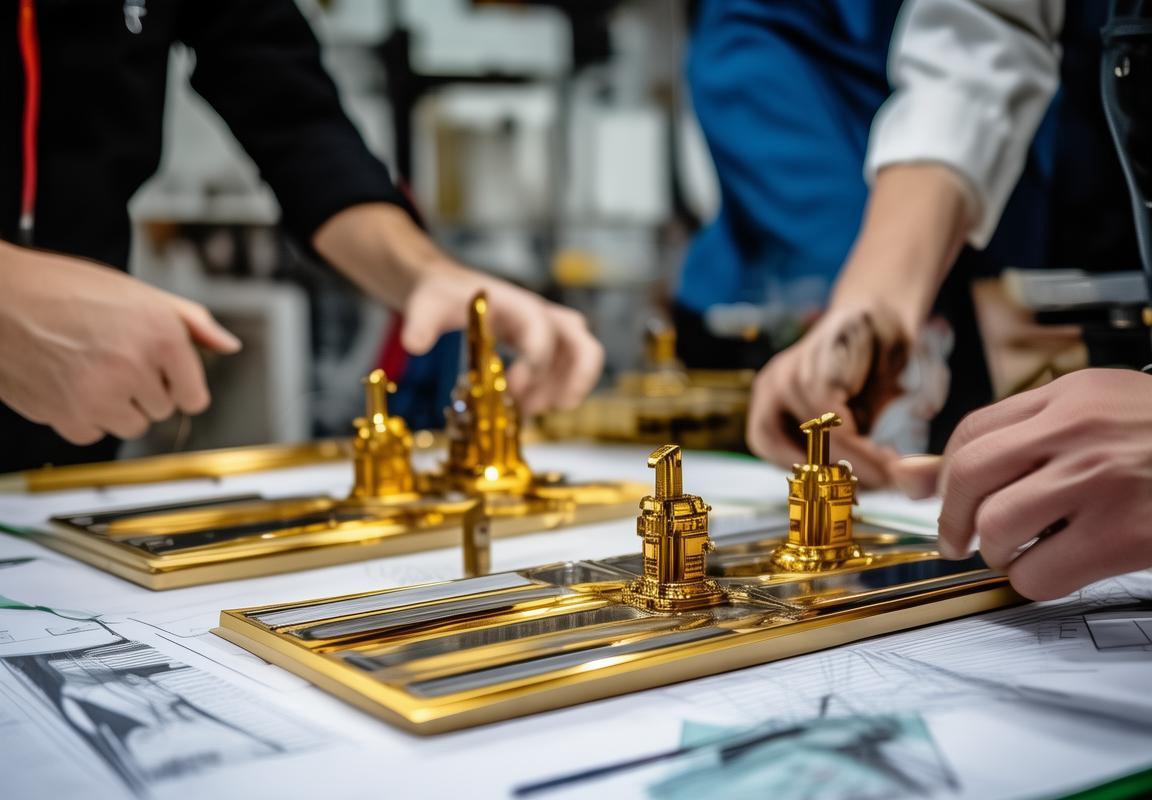
Case Studies: Success Stories with Contact Grill Manufacturers OEM
In the world of outdoor cooking, contact grill manufacturers OEMs have become pivotal partners for businesses looking to enter or expand in the market. Here are several case studies showcasing success stories with these manufacturers:
The Story of SunBake Grills: From Concept to Market LeaderSunBake Grills started as a small enterprise with a dream of revolutionizing the outdoor cooking experience. Partnering with a contact grill manufacturer OEM allowed them to bring their innovative designs to life. The OEM provided not just the manufacturing expertise but also the ability to scale up production quickly. Within a year, SunBake Grills became a market leader, thanks to the OEM’s ability to produce high-quality grills that met both domestic and international standards.
GreenGlow Grills: Sustainability Meets ExcellenceGreenGlow Grills focused on eco-friendly materials and energy-efficient designs. By collaborating with an OEM specializing in contact grills, they were able to produce a line of grills that were not only sustainable but also boasted impressive performance. The OEM’s commitment to green manufacturing processes was a perfect match for GreenGlow’s vision. The result? A product line that not only appealed to environmentally conscious consumers but also garnered industry awards.
The Rise of BBQBliss Grills: From Startup to Brand IconBBQBliss Grills was a startup with a passion for innovation and a desire to create a brand that represented the joy of backyard barbecues. They chose an OEM with a reputation for high-quality manufacturing and a strong track record of bringing unique ideas to market. The OEM helped BBQBliss refine their designs and streamline production, ensuring that each grill was a testament to craftsmanship. Today, BBQBliss is recognized as an iconic brand, with a loyal customer base that values their commitment to quality and creativity.
GrillEase Grills: Customization and Customer SatisfactionGrillEase Grills understood that the market demanded variety. They collaborated with an OEM that excelled in custom manufacturing, allowing them to offer a wide range of grill styles, sizes, and features. The OEM’s flexibility and willingness to adapt to GrillEase’s specific needs meant that the company could cater to niche markets and special orders. This approach led to a surge in customer satisfaction and repeat business.
The Journey of FireNest Grills: From Local Favorite to Global PresenceFireNest Grills began as a local favorite, known for their handcrafted grills. When they decided to expand, they partnered with an OEM that offered both precision manufacturing and the ability to handle larger orders. The OEM’s support allowed FireNest to maintain their high-quality standards while scaling up. Today, FireNest Grills has a global presence, with distributors in Europe, Asia, and North America, thanks to the OEM’s expertise in international supply chains and logistics.
The Success of HeatWave Grills: Innovation Through CollaborationHeatWave Grills aimed to be at the forefront of grill technology. They chose an OEM that was not only experienced in manufacturing but also in R&D. This collaboration led to the development of a new line of grills with advanced heat distribution systems and smart technology controls. The OEM’s support in bringing these innovations to market quickly ensured that HeatWave Grills captured the attention of tech-savvy consumers and industry professionals alike.
In each of these case studies, the partnership with a contact grill manufacturer OEM played a crucial role in the success of the brands. Whether it was through the production of high-quality grills, the ability to scale operations, or the development of innovative new products, these OEMs were instrumental in turning dreams into reality and helping their clients become industry leaders.
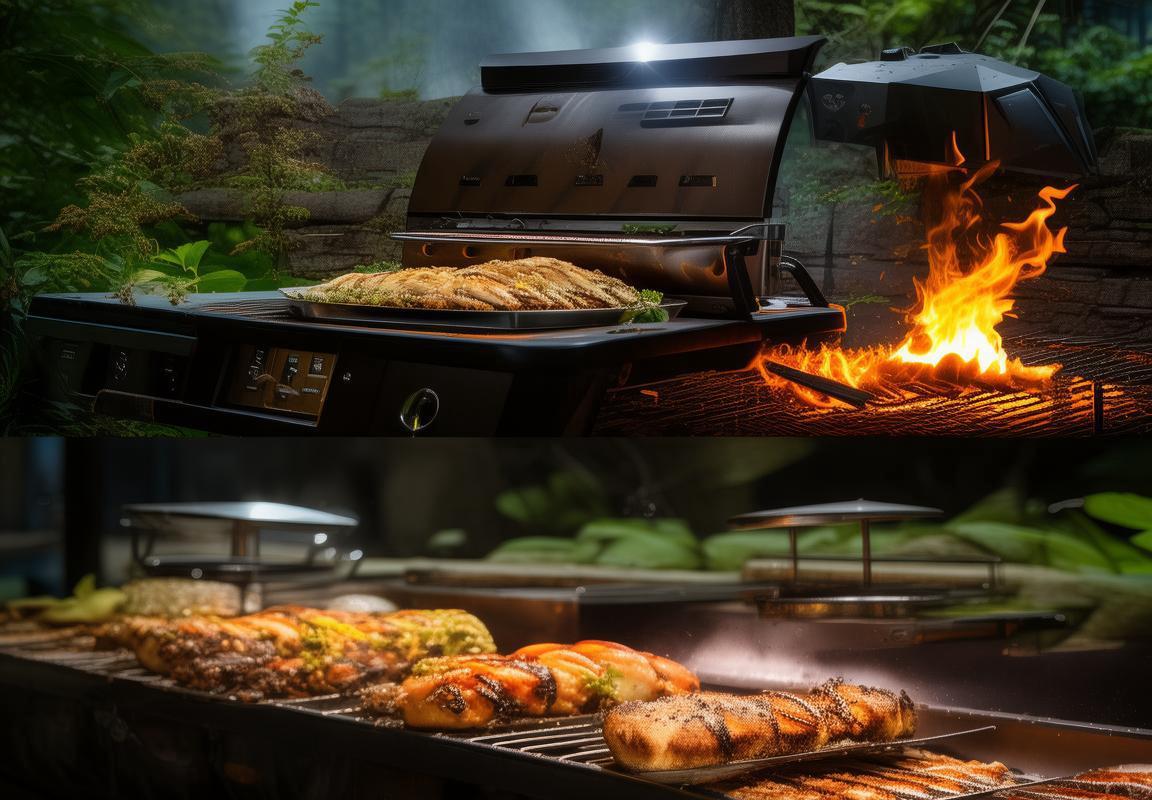
Conclusion: Why Selecting the Right OEM is Crucial for Business Growth
In the ever-evolving world of culinary appliances, selecting the right Original Equipment Manufacturer (OEM) for your contact grill business is a pivotal decision. The right OEM can significantly impact your brand’s reputation, customer satisfaction, and overall business growth. Here’s why choosing the right OEM is crucial for your business:
Your brand’s image is everything in the competitive market. An OEM that aligns with your brand’s values and standards can help maintain or enhance your brand’s image. They understand the importance of quality, design, and customer expectations, ensuring that the contact grill products they produce reflect your brand’s promise.
A reliable OEM has the expertise to handle the complexities of manufacturing. They have the knowledge to source high-quality materials, utilize advanced technologies, and adhere to stringent quality control measures. This ensures that your contact grills are not only durable but also meet industry standards, giving you peace of mind that your customers will receive a premium product.
Collaborating with an experienced OEM can lead to innovative product development. They stay abreast of market trends and technological advancements, offering suggestions for improvements or even groundbreaking features that can set your contact grill apart from the competition. This partnership can be a springboard for new product lines and a competitive edge in the market.
The right OEM can streamline your supply chain, reducing lead times and improving efficiency. They have the infrastructure to handle large orders, manage inventory, and ensure timely delivery. This means you can focus on other aspects of your business, such as marketing and customer service, without worrying about production delays.
When it comes to cost, an experienced OEM can offer significant savings. They have established relationships with suppliers, allowing them to negotiate better prices for materials. Additionally, their efficient production processes can reduce waste and lower overall manufacturing costs. This can translate into competitive pricing for your customers and increased profit margins for your business.
Customer satisfaction is paramount in the appliance industry. An OEM that prioritizes quality and customer service ensures that your contact grills are reliable and easy to use. This can lead to repeat business and positive word-of-mouth referrals, which are invaluable for long-term growth.
In the event that issues arise, a reputable OEM is committed to resolving them promptly. They offer technical support and can address any manufacturing defects or customer complaints. This level of service not only protects your brand reputation but also demonstrates to your customers that you stand behind the products you sell.
The right OEM can also help you navigate regulatory compliance. They are familiar with the safety standards and certifications required for contact grill products, ensuring that your products meet all legal requirements. This can prevent costly legal issues and give you the confidence to market your products with confidence.
In the realm of international trade, an experienced OEM can be an invaluable partner. They have the knowledge to handle customs, shipping, and import/export regulations, making it easier for you to expand your business globally. This can open up new markets and opportunities for growth.
Lastly, a strong partnership with an OEM can lead to long-term business relationships. They become an extension of your team, working closely with you to achieve common goals. This collaborative approach can foster innovation, adaptability, and a shared commitment to excellence.
In conclusion, selecting the right OEM is not just about choosing a manufacturer; it’s about building a strategic partnership that can drive your business forward. From maintaining your brand image to driving innovation and ensuring customer satisfaction, the right OEM can be the key to sustainable growth and success in the contact grill industry.